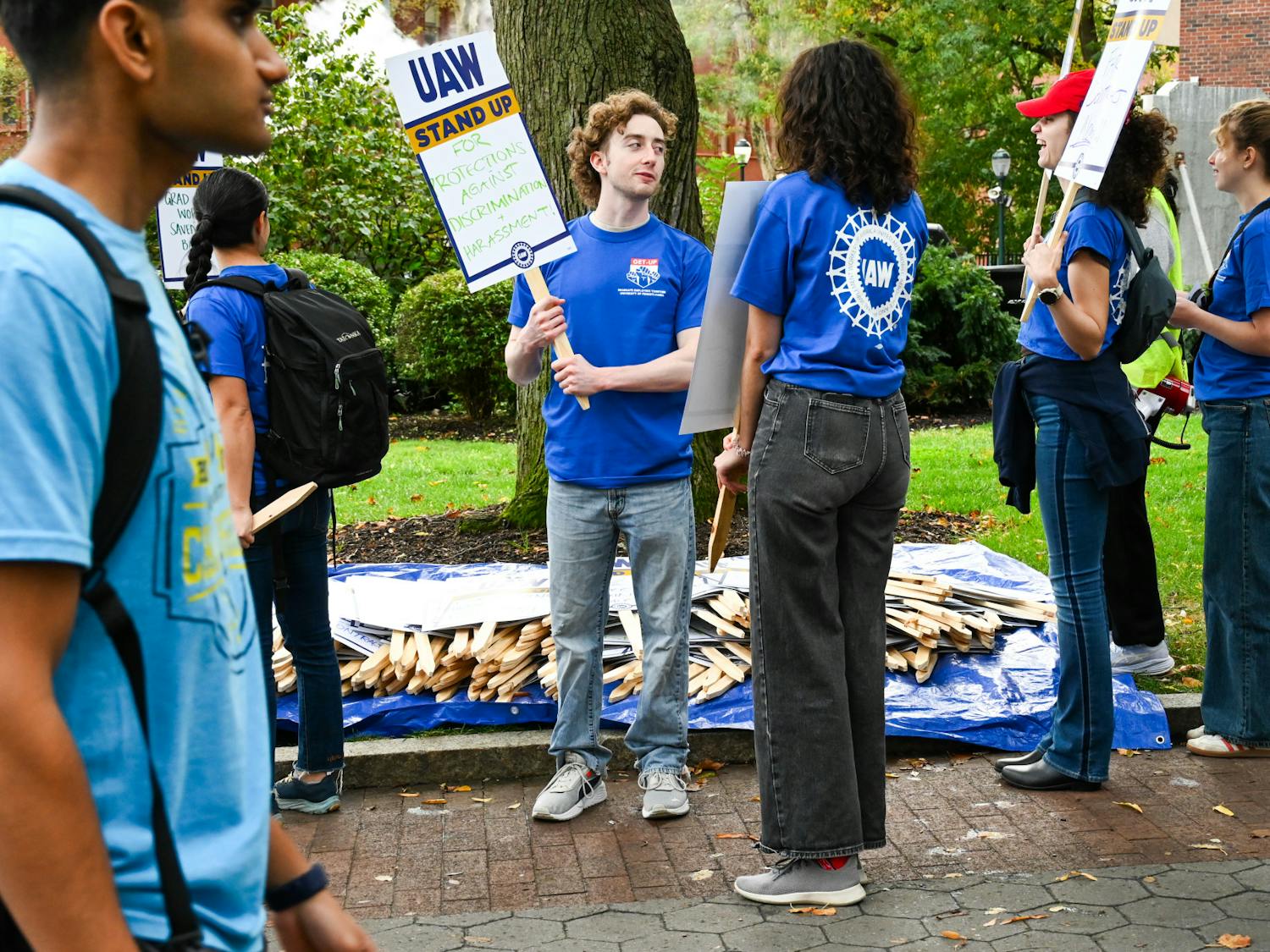The fate of McGinn Security Services' agreement with the University to provide guard service in residence halls will be announced tomorrow by acting Vice Provost for University Life Valarie Swain-Cade McCoullum. A report released by a committee of University officials, students and staff members earlier this week lists three courses of actions the University can take. One option is to terminate the contract with McGinn within 30 days. Another possibility is for the University to place the security firm on a 90-day probationary period. If there are any performance standard violations during this period, the agreement would be immediately terminated. Finally, the University can terminate the contract on June 30 of this year, four years earlier than when the contract is set to expire. If this is done, McGinn would have to rebid, along with other security firms, in order to receive the contract. Regardless of what McCoullum decides concerning McGinn, problems with residential security have been highlighted during the process and must still be addressed. Simply firing McGinn, if this is what the University decides to do, is not the ultimate solution to residential security problems, University Police Commissioner John Kuprevich has said repeatedly throughout the investigation. It still remains to be seen whether any other guard firm in the area will be able to provide better services for the University if the current residential security policy remains the same. A team of independent security consultants, in a report prepared for the Department of Public Safety, recommended that "the security function be re-organized and that security management, operators, programs and career development responsibilities be transferred to the Department of Public Safety." Residential security issues are currently handled by the Residential Living Department. And it was Residential Living, and not McGinn Security Services, that refused to allow guards to eat or drink at guard posts. Richard Schwab, a sleep expert at the Hospital of the University of Pennsylvania, wrote in a report that this policy is a mistake and actually increases the likelihood that guards will fall asleep. Guards are now allowed to eat and drink at their posts as a result of these findings. Another concern with residential security is the fact that the security guards really only have one function, to check identification cards. Director of Public Safety George Clisby said guards should be given more responsibilities, such as patrolling student floors and the exteriors of buildings. If the University decides to have McGinn and other firms bid for a new contract, it will need to amend the contract to make sure specific guidelines for performance standards and responsibilities for the guards are explicitly stated. "Clearly no contract will be purchased with anyone that has no reference to performance standards," Interim President Claire Fagin said earlier this week. And McCoullum has said in the past month that the University has been looking into the possibility of investing in new technology such as the installation of ID scanners on the outside of buildings. She also said that it is important that the funding necessary for the improvement of residential security is raised. Last year, when Residential Living wanted to hire another roving guard from McGinn to patrol all the residences, it found there was no money in its budget to pay for this. Joseph McGinn Sr., president of McGinn Security Services, wound up paying for the additional guard at his own expense, Residential Living Director Gigi Simeone said. But McCoullum said Monday that regardless of the cost, improving residential security is a priority.
The Daily Pennsylvanian is an independent, student-run newspaper. Please consider making a donation to support the coverage that shapes the University. Your generosity ensures a future of strong journalism at Penn.
Donate







